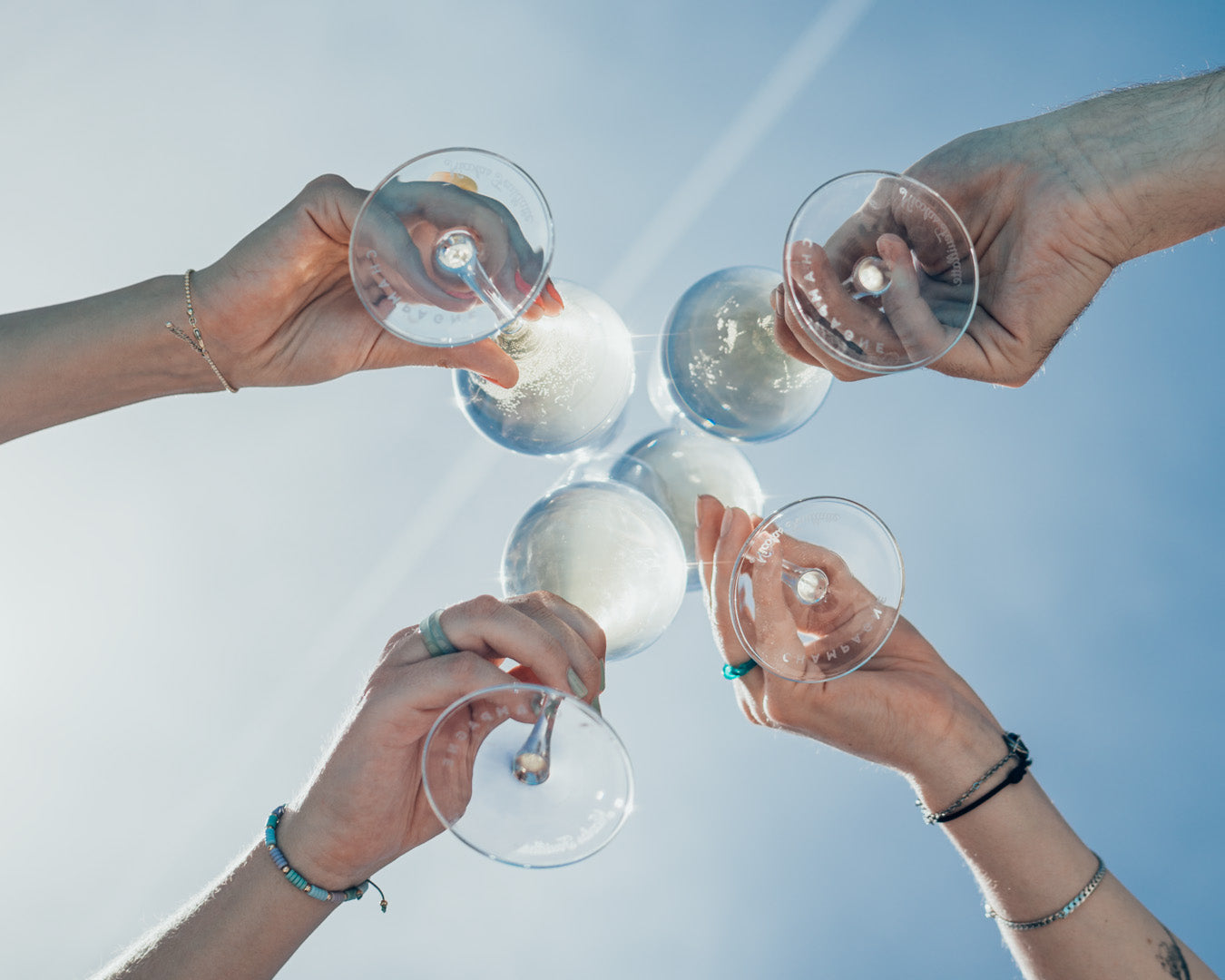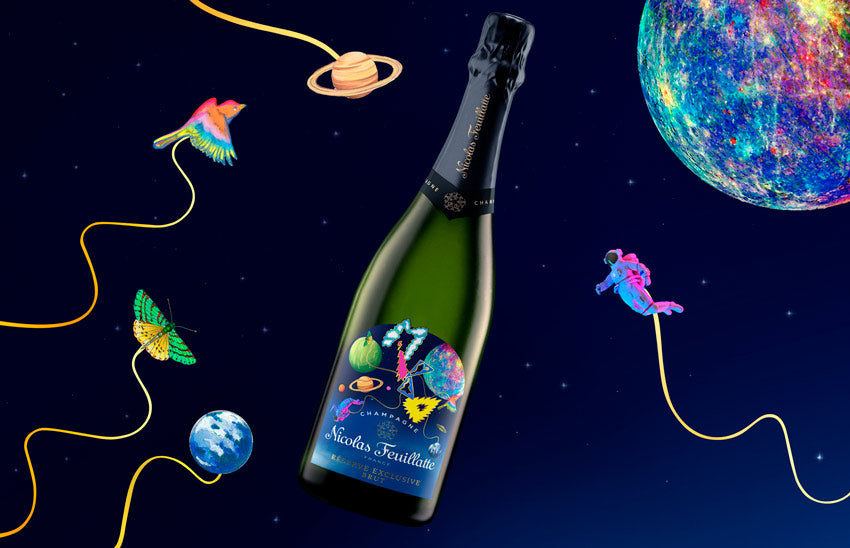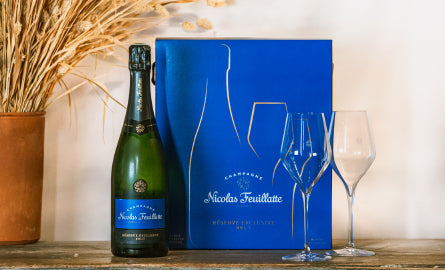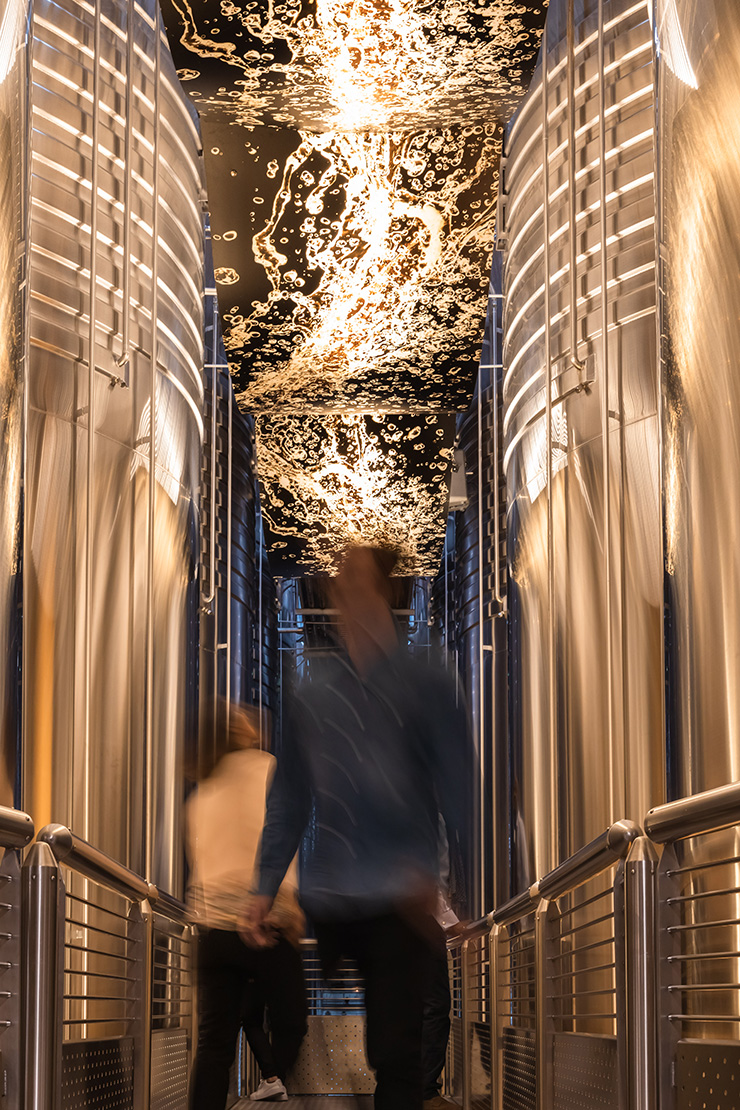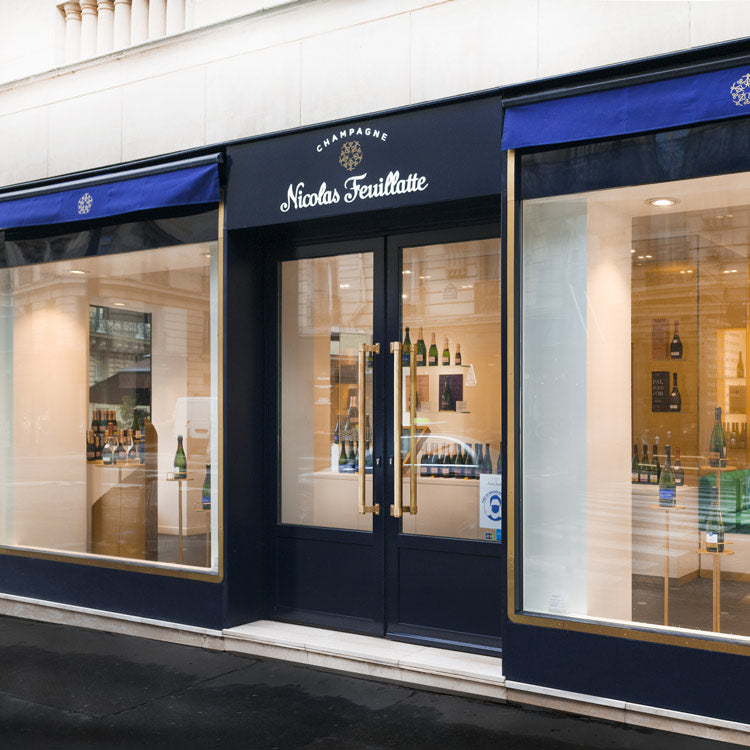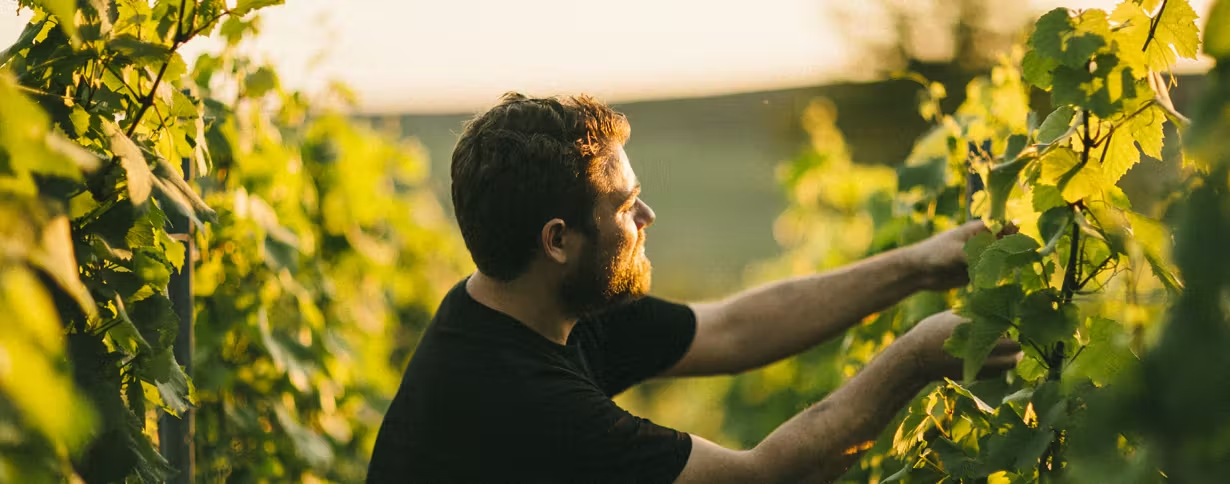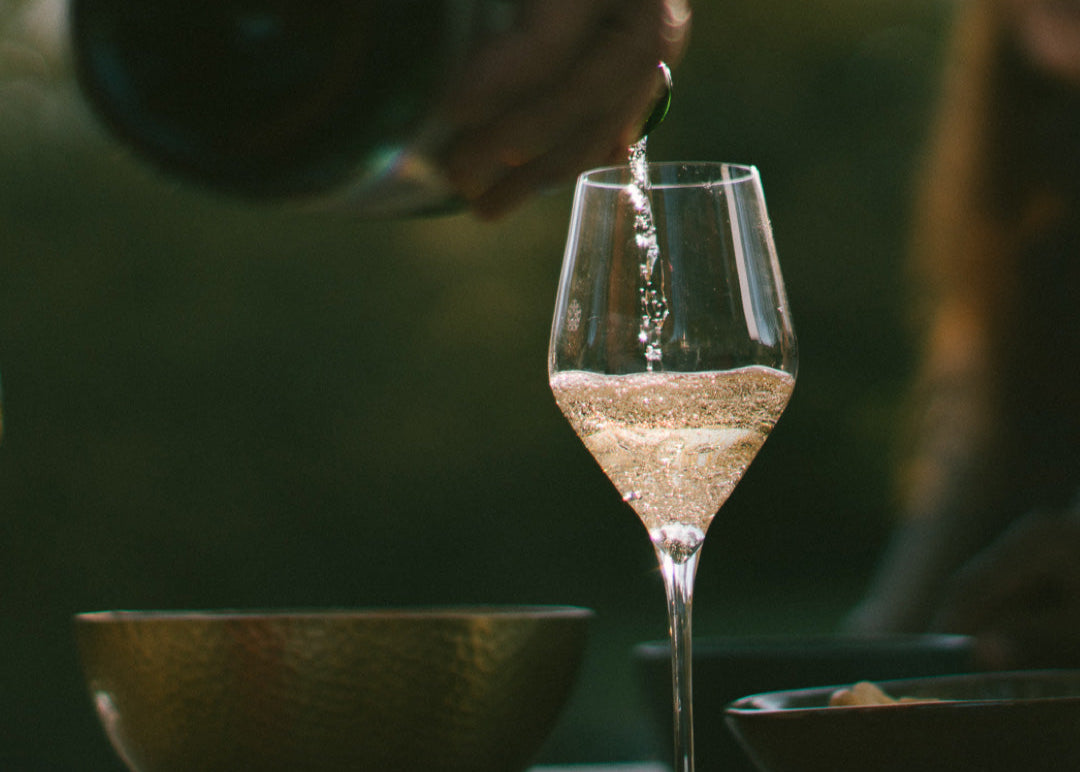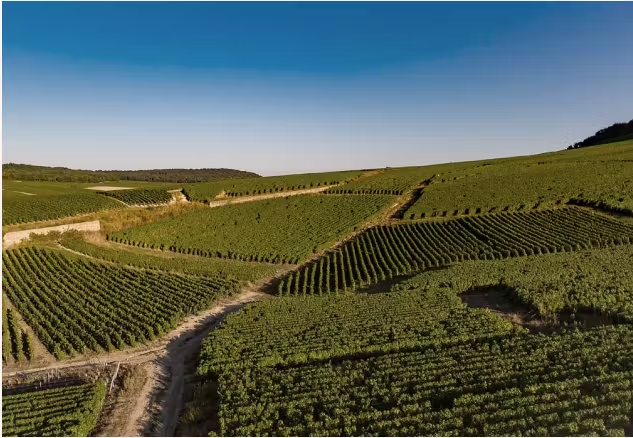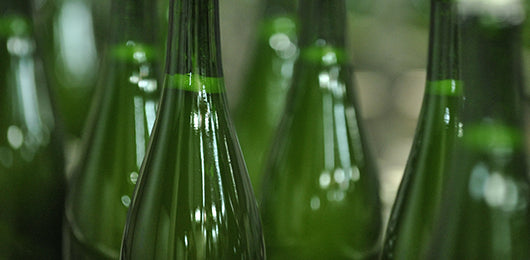Why this page?
To learn more about your bottle, its composition, its recycling, and our recommendations for informed consumption.
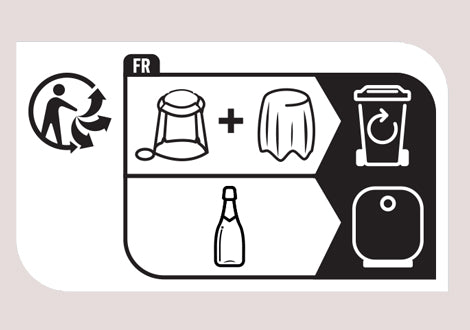
Recycling information - Recycling your bottle
The removable parts on the bottle, namely the aluminum cap and the wire cage (the plate and its cage) go in your recycling bin.
The glass bottle and the cork stopper must be placed in a glass recycling bin, either individually or collectivel

Recycling of corks
The national recycling guideline states that small corks must follow the glass bottle recycling process to prevent them from ending up in nature.
However, cork stopper sorting channels exist locally, and they are just waiting for your help to revive the cork stopper in the form of insulating materials, designer objects, etc.
The French Cork Federation invites you to drop off your used cork stoppers at the collection point closest to your home, which you can find by searching on its official website.
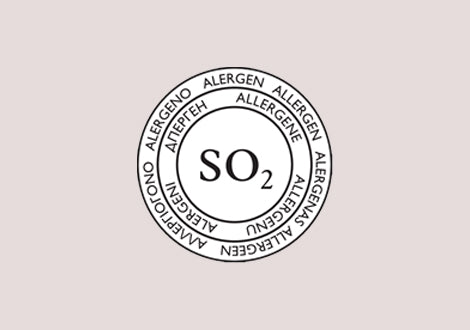
Allergen and sulfites information on Champagne
Our champagnes contain sulfites, which can sometimes be poorly tolerated.
Due to its antiseptic properties, sulfiting plays an important role in controlling unwanted indigenous yeast and bacterial populations during the production of Champagne wines. Due to its antioxidant properties, it helps preserve the physicochemical and sensory characteristics of the wines throughout the winemaking process.
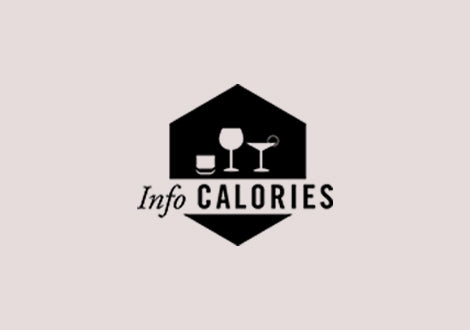
Calorie info
For 100 ml (or 10 cl) of Brut Champagne: 75 kcal and E = 317 kJ.
Did you know? The calories in a glass of wine or spirits come primarily from the alcohol molecule (which varies depending on the alcohol content). Then there are the sugars present in the finished product, which depend on the raw materials used and the production process.
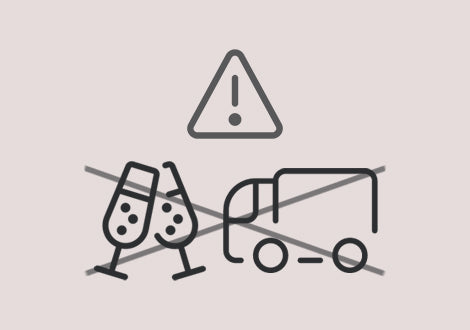
Responsible consumption
A 10 cl glass corresponds to one unit of alcohol.
In France, it is illegal to drive with a blood alcohol level equal to or greater than 0.5 grams (or 0.2 grams with a probationary license). It is best to abstain from alcohol before getting behind the wheel or to have your blood alcohol level tested to ensure you are safe to drive.
Furthermore, it is advisable to refrain from consuming alcohol in the following situations:
- before turning 18 (in France) or before reaching the minimum legal age required to consume/purchase alcohol, in accordance with the legislation in your country of residence,
- during pregnancy and breastfeeding,
- while taking medication,
- if you have to handle tools or machines (DIY etc.)
- practice of risky sports,
- existence of certain pathologies.
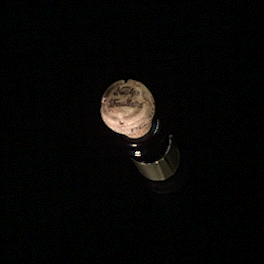
Pressurized bottle
Did you know? A bottle of champagne contains approximately 6 bars of pressure, which is equivalent to three times the pressure of a car tire.
This is why we recommend that you exercise the utmost caution when opening a bottle, and in particular remember to point the bottle away from any person or object that could be struck by the cork when it is expelled.
We also advise against sabrage, which, although it may seem spectacular, should remain reserved for a circle of professionals under optimal safety conditions.
